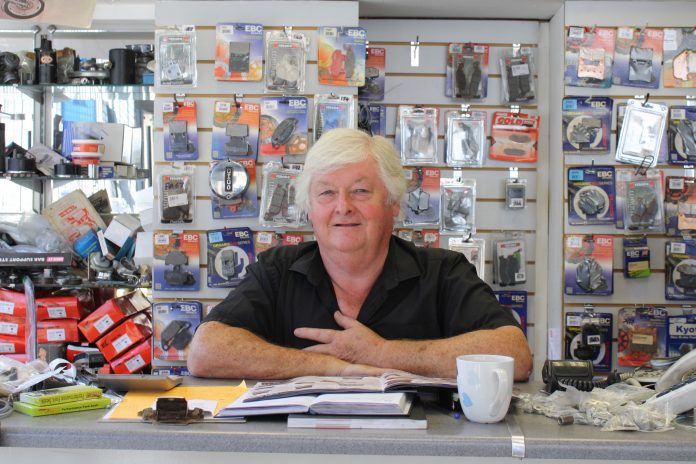Today I had a discussion with Anthony Huck, founder and owner of Maitland Racing. His firm has been in operation since 1974 and has expanded from its roots in repair services, to building motorcycles, MOTs and organising and running motor-racing events.
While interviewing Mr Huck, he identified that a core tenet of a successful business is one that correctly identifies the market that it is operating in, and not only caters to that market but makes itself available to it.
He then went on the warn against getting sidetracked with fashionable and apparently lucrative ventures, stressing the importance of sticking to one’s core function and entertaining side ventures with caution. It is true of any business that you will be successful once you establish what you are good at and do that first and foremost, then you build onto other projects if desired.
After accruing success with his workshop and taking part in motor-racing on the side, Mr Huck was able to diversify his company. Gaining experience in the motor-racing sphere allowed Mr Huck to organise his own events using a similar model, whilst using the observations he had made to build upon the organisational shortfalls of his predecessors.
“You either have to put up or shut up. I started running race events because I thought I could do it better”, He said.
“In recent years those events have become more of a business than me just indulging my interest in motor-sport.”
The key issue is not to conflate a side venture with your core function. Mr Huck began the racing events as a project which he enjoyed running and was fortunate enough for them to become a lucrative venture. Only once this occurred did the events become part of his business model.
In regard to online trading and retail, Maitland Racing uses its website primarily for marketing purposes and has only recently begun offering retail opportunities – technology does not aid in it completing its primary function.
“I have not yet seen a website or app that can repair a motorbike”, said Mr Huck.
As part of establishing oneself, a prospective business owner needs to build relationships with others in their field and attempt to establish a network. Additionally, building a relationship or understanding with a bank is important, but one also needs to be in control of these relationships. Borrowing as little as you can to keep your business going is of paramount importance, “I think most people overstretch themselves financially and then end up working for the bank rather than for themselves.”
In terms of a corporate image, a fashionable model is pedaled by many people, including business managers at banks, which discusses the appearance, logo and brand of a business. What is important to remember is that most people that work in banks have never actually run a business, so “you get a lot of advice from people who have never actually stood behind the counter of a shop and dealt with the general public.”
“It is very easy to be seduced into the appearance of a business, rather than its substance.”
Mr Huck stressed that the practicalities of operating a small business would be a reality shock for many working in banks. The primary concern of a company should be its marketable products or services – the way they are marketed should be secondary.
“I think people with small businesses need to start off by creating a substance for their business which is sustainable.”
As a testament to the success of his business, Mr Huck has become a well-known face within motorcycle racing spheres, to the extent that his identity and personality are now part of his business’ brand. In a small business, it is of paramount importance that one works within their means and does not confuse themselves with a multinational company. What sets them apart from multinationals are the importance of their human element, and this element should be used to their advantage.
In the early days of his company Mr Huck attributed its success to the buoyancy of the motorcycle market in the 70s, but said the thing that has helped sustain this success is what he described as an “old-fashioned” business model. His company’s ability to make parts from scratch sets it apart from other retailers, especially the stiff competition from the online market and lower price goods from China. He believes there is still a place for this way of operating, which heavily relies on the human element.
His main piece of advice to someone starting a small business today is that a prospective business owner must be prepared to put the time and effort into running their company, and once again he reiterated the importance of identifying one’s market – then one needs to “go and find those people, and make yourself available to them […] they’re not necessarily going to come to you.”
He attributes the longevity of his business to demand. He believes that despite technological advancements, the demand for someone to supply the services he provides still exists, “until someone invents an app or a computer that can hold a spanner, I have a very happy business.”
Essentially, as part of identifying your niche, identify your competition. Mr Huck’s methods may at some point become outdated, but for now he has a viable business model because he appreciates the strengths of outsourced production and the internet marketplace, and in turn provides a service that warrants the higher prices he charges.




